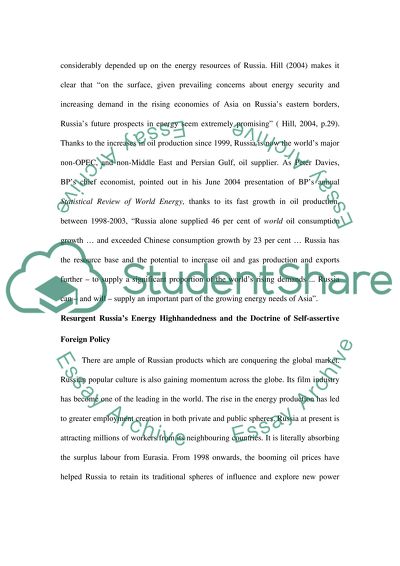Cite this document
(“Russian Foreign Policy Master Essay Example | Topics and Well Written Essays - 1750 words”, n.d.)
Retrieved from https://studentshare.org/politics/1499586-russian-foreign-policy-master-essay
Retrieved from https://studentshare.org/politics/1499586-russian-foreign-policy-master-essay
(Russian Foreign Policy Master Essay Example | Topics and Well Written Essays - 1750 Words)
https://studentshare.org/politics/1499586-russian-foreign-policy-master-essay.
https://studentshare.org/politics/1499586-russian-foreign-policy-master-essay.
“Russian Foreign Policy Master Essay Example | Topics and Well Written Essays - 1750 Words”, n.d. https://studentshare.org/politics/1499586-russian-foreign-policy-master-essay.


